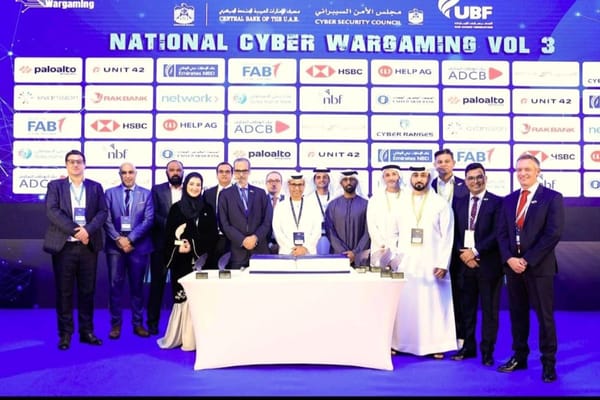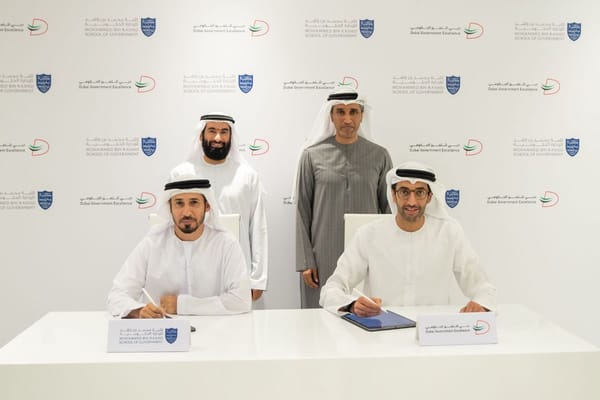In the heart of the Middle East, an unprecedented transformation is reshaping the gaming industry into a thriving oasis of change. With the MENA gaming scene set to hit $6bn by 2027, the once niche realm of joysticks and pixels has evolved into a powerhouse with strategic significance. From arcade games to full-blown constructed immersive worlds to virtual reality, the gaming industry isn't just growing; gaming has become the next big thing.
The Strategic Oasis: Gaming's Meteoric Rise
According to SuperData Research, the MENA E-Gaming market was valued at USD 5.7 million in 2022 and is projected to grow at a CAGR of about 21.1% from 2023–2030. This growth rate is outpacing the global average, with a substantial annual growth rate of 25%.
Major corporations are recognizing the influence of gaming on cultures and economies, exemplified by Saudi Arabia's Savvy Games Group, which invested approximately SR142 billion ($37.8 billion). As we can see the MENA gaming sector is expected to generate $5 billion in revenue by 2025, with the GCC nations playing a vital role in this growth. Through collaboration and co-hosting competitions, these countries can establish the region as a global center for esports. Notably, in 2020, the global gaming industry was estimated to be worth $159.3 billion, significantly surpassing the movie industry, valued at $19.1 billion, according to analysis.
So, what led to this meteoric rise?
The Pandemic Effect: A Consumer Shift and Strategic Initiatives
During the global pandemic, the gaming industry surged as people sought escapism amid lockdowns. This trend, fueled by increased leisure time due to remote work and limited recreational options, was evident on Twitch, which saw an 83% YoY increase in viewership, totaling over 5 billion hours in Q2 2020, according to Streamlabs and Stream Hatchet. Consumer spending took an unexpected turn, with the gaming sector experiencing a substantial boost. As brands pivoted, the Middle East took bold strides, unveiling strategic initiatives that would redefine the gaming narrative.
The region's strategic initiatives, including the Dubai Program for Gaming 2033 by Crown Prince Sheikh Hamdan Bin Mohamed, are set to contribute a remarkable $1 billion to Dubai's GDP. Additionally, Saudi Crown Prince Mohammed bin Salman's recent initiative aims to attract 250 gaming companies to the Kingdom by 2030, injecting 39,000 jobs and 50 billion riyals into the sector's contribution to the country's GDP.
The gaming industry's pandemic success is linked to factors like increased free time, a desire for virtual social interaction, and the inherent appeal of gaming. Middle East strategic initiatives not only acknowledge the sector's potential but also actively fortify it post-pandemic.
Demographics and Devices: The Shifting Sands of Gaming
The gaming landscape is evolving, driven by changing demographics and devices. Smartphone penetration in the Middle East, reaching 92% in 2023, has democratized gaming, making it more accessible. During lockdowns, there was a 200% increase in users over 60, joining the 93% of under-18s engaging in regular gaming.
This surge in smartphone users not only broadens the gaming community but also influences preferences and genres. Mobile gaming, recognized for its accessibility, propels on-the-go genres, with casual games like puzzles and trivia gaining popularity among both seasoned gamers and newcomers.
Meanwhile, with Esports taking the forefront, brand endorsements have seen a substantial increase. Successful campaigns like KitKat’s ‘Give Gamers a Break’ in FIFA ‘22 and Croc’s ‘Chill vs Sports Mode’ in Minecraft exemplify this growing trend, showcasing how gaming has become a dynamic platform for brand engagement and integration.
Local Impact, Global Collaborations: A Confluence of Forces
Gaming is not confined to borders; it's a global phenomenon. Brand collaborations such as KFC's limited-edition Gamer Box turned the Middle East into a gaming arena with international resonance. The recent partnership between the global esports brand Nigma Galaxy and BMW Middle East came about from the region’s initiative to develop local esports talent and promote esports on a global scale. This not only amplified the region’s involvement in gaming globally but also provided a platform for local talent to enhance their gaming skills.
Shaping Gaming into a Cultural and Commercial Epicenter
In the past three years, gaming has surged, captivating both hardcore and non-gamers. Multiplayer and social games emphasize the social aspect, augmented by AR and VR elements in mobile games. Strategic initiatives, shifting demographics, advertising, and global collaborations converge to make gaming a robust revenue-generating sector and a cultural bridge. It demands attention and participation, serving as an oasis of transformation, where every click and strategy extends beyond the screen.
Gaming stands as an oasis of transformation, where every click and strategy extends far beyond the screen.
News Source: Communicate Online









